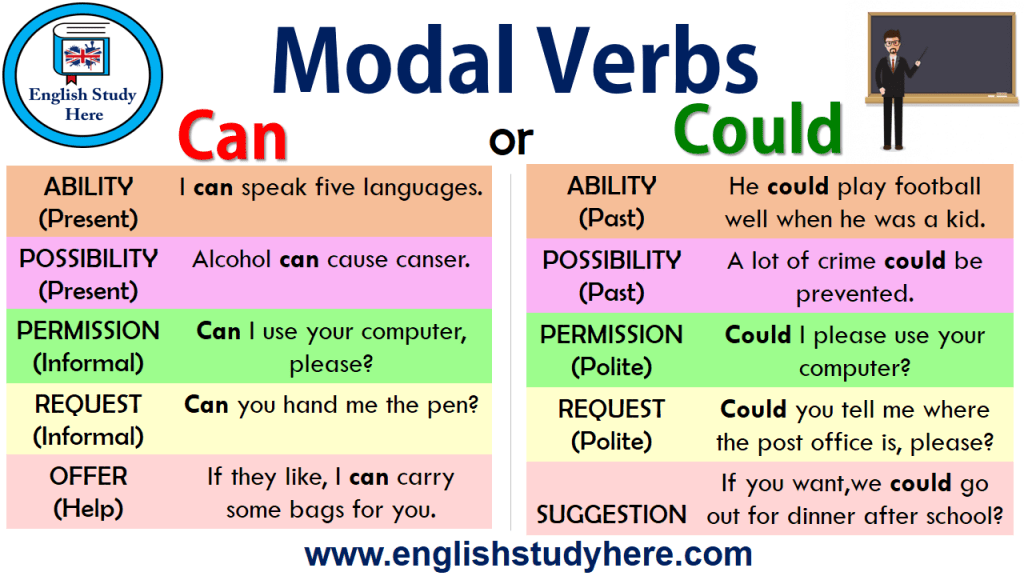Could Should Would Modal Verbs
Could Should Would Modal Verbs. So, before using them think if it is a suggestion or an opinion. They are a type of auxiliary verb we use with other verbs to add more meaning to the verb. Would could should ‖ modal verbs ‖ teacher aubrey bermudezlearn how and when to use the modal verbs: And just like should, it is an auxiliary verb. Play this game to review english. Remember that the modal verbs: We can use ‘will’ with all the three persons to express pure. When mark was young, he could play the.

Let us make your jou. Technically, could is the past tense of can. These verbs can, could, may, might, will, would, shall, should, must, and ought are called modal verbs or modals. You can say sentences like the ones above but only if they come after a. They are the past tense of ‘shall’, ‘will’ and ‘can’ but are also used in other situations. Learn english today free materials and resources for learners of. It does not require the use of any additional auxiliary verb, as the questions are. Would, could, and should correctly!
Play This Game To Review English.
These verbs can, could, may, might, will, would, shall, should, must, and ought are called modal verbs or modals. What is the modal verb of will? In this article we are going to study about the modal verbs ‘shall, should, will, would’. It does not require the use of any additional auxiliary verb, as the questions are. Can, could, should and would can be used with almost any verb, but they have different meanings. Let us make your jou. When mark was young, he could play the.
They Are Used Before Ordinary Verbs And Express Meanings.
9 rows he may. Will, would, shall, should, can, could, may, might and must. Most dinosaurs walked on land, but some _____ fly or even swim. Remember to read first the sentence and think about the meaning. Would could should ‖ modal verbs ‖ teacher aubrey bermudezlearn how and when to use the modal verbs: Can, could, should and would can be used with almost any verb, but they have different. We can use ‘will’ with all the three persons to express pure.
🔗 Modals Dalam Bahasa Inggris Berfungsi Untuk Mengekspresikan Willingness (Kemauan) Atau Ability (Kemampuan), Necessary (Kebutuhan), Dan Possibility (Kemungkinan).
When jane was a student, she could study for 10 hours a day. Technically, could is the past tense of can. Answers are at the bottom of the page. Learn english today free materials and resources for learners of. Will is a modal verb used with promises or voluntary actions that take. The verb “can” has one form for all singulars and plurals and occurs only in the present tense. After modal verbs we use the infinitive form without to.
Could Should Would (Exercises) Click Here To Download This Printable Exercise In Pdf.
Modal verbs are auxiliary verbs (also called helping verbs) like can, will, could, shall, must, would, might, and should. ‘should’, ‘would’ and ‘could’ are auxiliary verbs that can sometimes get confusing. What is modals and its examples? Would, could, and should correctly! They are the past tense of ‘shall’, ‘will’ and ‘can’ but are also used in other situations.
Posting Komentar untuk "Could Should Would Modal Verbs"